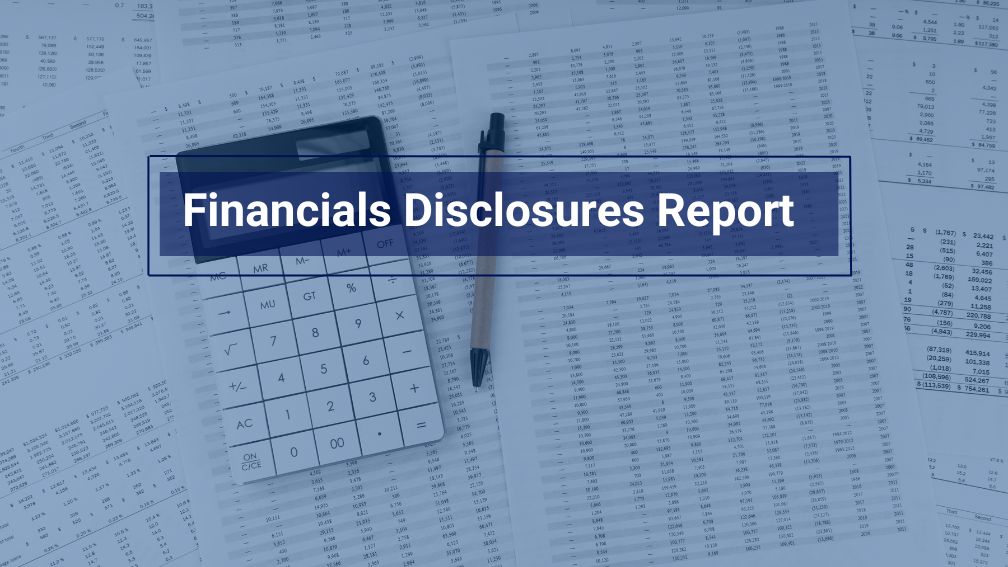What is a Financial Disclosure Report
Last Updated on February 15, 2024 by Morgan Beard
A financial disclosure report provides detailed information about the financial aspects of a company or organization. It includes financial statements, such as balance sheets, income statements, cash flow statements, and accompanying notes. These reports are typically prepared and published periodically, such as annually or quarterly, and are often required by regulatory bodies or stock exchanges for publicly traded companies.
In the context of lease accounting, the importance of a financial disclosure Report cannot be overstated. This article will delve into the reasons why such reports are crucial in this particular domain, catering to commercial tenants, CPAs, and real estate teams who need a user-friendly and collaborative solution to streamline lease management and accounting processes. Let us explore the central theme of this article in more detail.
Compliance with Accounting Standards
A financial disclosure report plays a vital role in ensuring compliance with accounting standards, such as Generally Accepted Accounting Principles (GAAP) or International Financial Reporting Standards (IFRS). These standards provide a framework for recording, reporting, and disclosing financial information in a consistent and transparent manner.
In lease accounting, the implementation of accounting standards such as ASC 842 and IFRS 16 has brought significant changes. These changes require lessees to recognize lease assets and liabilities on their balance sheets. The financial disclosure report provides an avenue for organizations to exhibit their adherence to these accounting standards and showcase their commitment to financial transparency. Read our blog on understanding the technical lease disclosure requirements under ASC 842 and documenting significant judgments.
Evaluation of Financial Performance
Another crucial aspect of a financial disclosure report is to facilitate the evaluation of a company’s financial performance. It provides stakeholders, including investors, creditors, and analysts, with comprehensive information about the organization’s profitability, liquidity, and solvency.
In lease accounting, these reports enable stakeholders to assess the impact of lease-related expenses on the financial position of the company. By including lease-related figures, such as lease liabilities, right-of-use assets, and lease expense disclosures, the report offers a holistic view of the financial performance and helps stakeholders make informed decisions.
Creditworthiness and Risk Assessment
Financial Disclosure Reports also contribute to determining the creditworthiness and risk assessment of a company or organization. Lenders and creditors rely on these reports to evaluate the financial stability and repayment capacity of potential borrowers.
In lease accounting, a comprehensive Financials Disclosure Report allows lenders and creditors to assess the impact of lease-related obligations on the financial health of the company. By disclosing lease liabilities, their maturity dates, and interest rates, the report enables creditors to evaluate the risks associated with lease obligations and make informed lending decisions.
Legal and Accounting Compliance
Compliance with legal and regulatory requirements is a fundamental responsibility of every organization. Financials Disclosure Reports play a critical role in meeting these obligations, providing a comprehensive overview of the financial aspects of the company.
In lease accounting, organizations need to comply with various lease-related regulations, such as ASC 842 and IFRS 16. These regulations mandate the disclosure of lease-related figures in the Financials Disclosure Report, ensuring transparency and compliance.
Lease Accounting Audit Needs
Lease accounting audits are vital for ensuring the accuracy and compliance of financial reporting under standards like ASC 842 and IFRS 16. Auditors meticulously verify lease data accuracy, assess compliance with accounting standards, and evaluate the effectiveness of internal controls. They review lease documentation for completeness and adequacy of disclosures, providing stakeholders with transparent insights into lease obligations.
Additionally, audits offer recommendations for process improvements, enabling organizations to optimize lease accounting operations and enhance overall financial governance. In summary, lease accounting audits serve as a crucial assurance mechanism, promoting transparent financial reporting, regulatory compliance, and sound financial management.
Financial Disclosure Report Summarized
A financial disclosure report is a central document that provides detailed information about the financial performance and condition of a company or organization. In the context of lease accounting, these reports hold immense importance in promoting transparency, compliance with accounting standards, and facilitating informed decision-making by stakeholders.
By including lease-related figures, such as lease liabilities, right-of-use assets, and comprehensive disclosures, the report enables commercial tenants and their accounting teams to streamline lease management and accounting processes.
The financial disclosure report serves as the cornerstone of this transparency, allowing stakeholders to assess the financial health, performance, and risks associated with a company’s lease obligations.
Lease Accounting Resources
Check out our resource hub. We have the templates, spreadsheets, and calculators to help you manage entire lease lifecycle.
